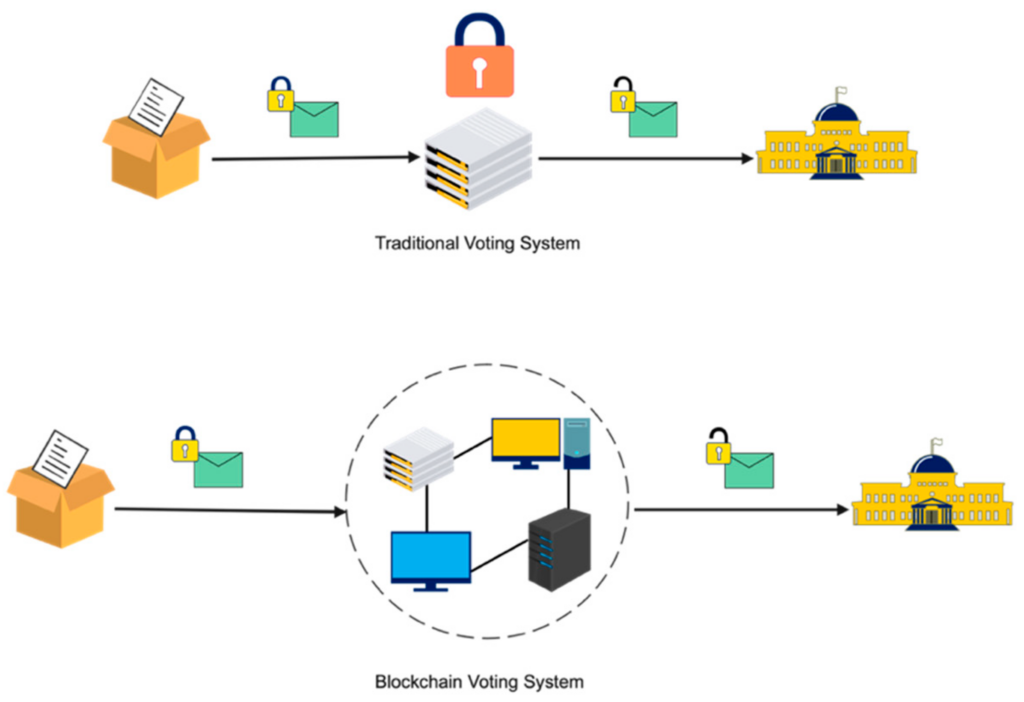Distributed ledger technology (DLT), sometimes known as blockchain, has been gaining popularity as a disruptive technology. DLT in voting and elections has garnered interest. Many experts believe that DLT might solve election security, voting fraud, and low voter turnout worldwide, revolutionizing elections and democracy.
Distributed ledger technology records transactions securely and transparently across a computer network. Bitcoin, the most famous DLT application, uses blockchain technology to record and verify transactions without a central authority. DLT might build a secure, transparent, and efficient voting system.
DLT may improve election security. Traditional voting systems—paper or electronic—are susceptible to manipulation and fraud. DLT-based voting creates a secure, encrypted record of each vote that is nearly hard to modify or manipulate. This would safeguard the electoral process from internal and external threats.

Ledger technology will affect voting and elections in the future
DLT-based voting systems might improve election transparency. Traditional elections tally and verify ballots in private, raising worries about manipulation or fraud. However, a DLT-based system would record votes on a public ledger viewable to all network users. Voters, candidates, and observers may check the vote total in real time.
DLT may also boost voting turnout. Long polling station lines, restricted voting venues, and voter indifference contribute to poor voter turnout in many nations. Remote, online voting using a secure DLT-based system may help overcome these limitations and increase democratic participation.
DLT may improve voting and elections, but it also raises various issues. Voter anonymity is crucial. DLT can record votes securely and transparently, but it must also safeguard voter identities and prevent vote-buying.
DLT-based voting systems may exclude people who lack technology or digital literacy due to the digital divide. To solve this problem, public access points or focused teaching and outreach initiatives must be established to allow all residents to vote in DLT-based elections.
In conclusion, distributed ledger technology might improve voting and election security, transparency, and efficiency. To assist and improve the democratic process for all citizens, this technology must address its issues and concerns. Governments, election authorities, and technology firms must collaborate to build solutions that fulfill the demands of all electoral stakeholders as they investigate DLT’s potential in this environment.

